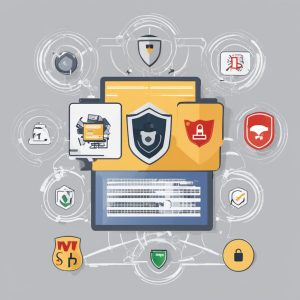
Most users today use mobile applications and online services that seem to be free at first glance. These can be popular social networks, messengers, games, or other useful programs for work or study. However, many people do not think that “free” applications often have their own hidden price – your personal data. In this article, we’ll take a look at the main myths about free apps and find out what you’re really “paying” for when you use them.
Myth 1: “A free app is really free”
At first glance, free apps do seem ideal – no download or usage fees. However, developers of such apps need to make a profit. One of the most common ways to monetize is by collecting and selling your personal data. When you install an app, it can access your geolocation, contacts, online activity, or even your files. They use this data to create a user profile, which is then sold to advertising companies for personalized advertising. Even if you don’t pay with money, you are actually “paying” with your data.
Myth 2: “If I uninstall an app, my data is also deleted”
Many people believe that after uninstalling an app, all the data it collected also disappears. In fact, this is not true. After the app is deleted, the data it has collected may remain on the company’s servers and can be used in the future. For example, most companies keep your activity, interests, and preferences even after you stop using their service. Therefore, to make sure that your data is really deleted, you should refer to the privacy policy or account settings, where there may be an option to “delete my data”. But even this does not always guarantee complete deletion of information.
Myth 3: “My data is not interesting, so there is no point in worrying”
There are thoughts like this: “Oh, my personal data is not of much value.” But you need to understand that even minimal information can be used to create your digital profile. For example, data about purchases, location, or search queries will be collected together with the data of millions of other users to create a valuable database that is sold to advertising agencies. Just so you understand, even such seemingly insignificant data can be used to influence your decisions – from advertising certain products to influencing your political views through targeted advertising.
Myth 4: “If an app is official in the store, it is safe”
Not every app on Google Play or the App Store is completely safe. Despite the fact that app stores have certain rules and filters for security, some may still behave unethically with data. There are many well-known cases where apps from popular stores have been found to be part of spyware or adware. They can request access to functions and data that they don’t need for their work. Here’s an example – a common flashlight app can request access to your contacts or geolocation. Isn’t that strange? That’s why you should be careful and always check the permissions you grant to an app during installation.
Myth 5: “Antivirus on my smartphone or computer protects my data”
Antiviruses do help protect against viruses, but they cannot control how your data is used by legitimate applications. Even when a program is not malicious in the classical sense, it does not mean that it cannot collect and transmit your personal data to third parties. Therefore, “just an antivirus” is not enough to protect your data. You need to read the privacy policy of applications carefully, limit access to unnecessary functions, and use applications that have a reputation for reliability.
Myth 6: “The privacy policy is always clear and protects me”
According to statistics, 90% of people ignore the privacy policy when installing an app, clicking “I agree” without reading the document. For better understanding, privacy policies often hide key points about how your data will be used. Even though these “privacy policies” are often written in complicated language and no one is interested in reading them, it is still important to pay attention to the main points, such as what data is collected, how it is used, and to whom it may be shared.
How to protect your data?
- Check permissions. Before installing an app, check what data it wants to access. If it requests access to data that is not required for its operation, refuse to install it or restrict these permissions.
- Use a VPN. To protect your privacy on the Internet, you should use VPN services to help you remain anonymous.
- Try to read the privacy policy. It can be tedious, but try to at least skim the highlights to see how your data will be used.
- Limit the use of social media accounts. Many apps offer to sign in with Google, Facebook, and other social networks. This certainly makes it easier to sign in, but it also gives you access to your profile and social media data.
- Use alternatives. Sometimes, instead of popular but less secure apps, you can find alternatives with a greater emphasis on privacy, such as Signal or WhatsApp instead of Telegram.
Thus, “free” apps often hide the true cost of their convenience in the form of your personal data. Understanding how and why this data is collected will help you maintain your privacy and protect yourself from unwanted consequences.

